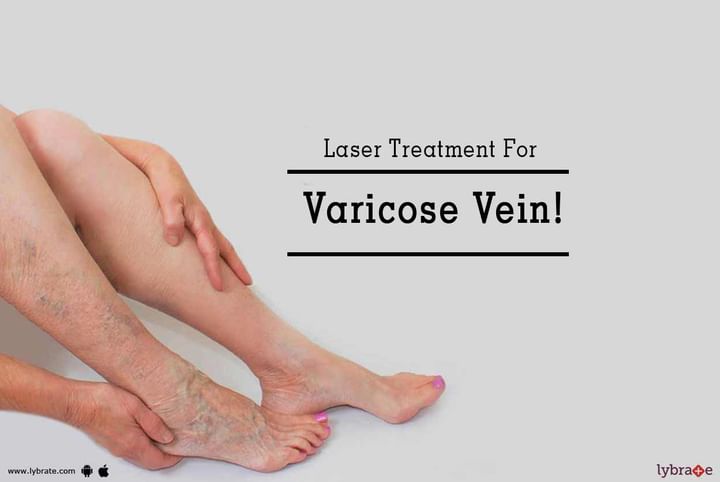Laser Treatment For Varicose Vein!
Varicose veins are twisted, enlarged superficial veins that typically appear in the feet and legs.
For many people, the condition is simply a cosmetic concern while for others varicose veins include symptoms like swelling, discomfort and aching.
What Causes Varicose Veins?
Doctors believe that damaged or weak valves may cause varicose veins. Arteries carry oxygenated blood from your heart to other parts of the body and the veins send it back to your heart for recirculation. The veins of your lower body need to work against gravity in order to return the blood to your heart.
Muscle contractions in the extremities act as pumps while the elastic vein walls send blood back to the heart. Small valves open in your veins as blood flows to your heart, and then close again to prevent the blood from flowing back. If these valves become damaged or weak, blood may flow back and accumulate in the veins, causing it to twist or stretch.
Symptoms of Varicose Veins
You may experience the following signs if you have varicose veins –
• Discoloration of the veins – usually they appear blue or dark purple
• Legs feel heavy
• Itching around the affected veins
• Muscle cramps
• A throbbing, burning sensation
• Swelling and bruising
• Discomfort and pain the veins of the legs
The symptoms of varicose veins are quite prominent and require treatment. If the condition is not that severe, exercises and compression stockings may be prescribed to manage the symptoms. However, if you are looking for a long-term cure, laser treatment may be the best option for you.
Can Laser Treatment Cure Varicose Veins?
Your doctor may use highly focused laser beams to treat varicose veins. The laser emits heat, which forms scar tissues. The scar tissue closes the vein so it loses its source of blood and eventually dies. In a year or two, the vein is likely to disappear.
Here are the different types of laser treatment you can opt for –
• Simple Laser Treatment – The laser beams are focused on the outer surface of the skin. It helps cure the tiny veins that are located just beneath the skin. Normally, more than one session of laser treatment is required. Your doctor may schedule you for a session every 6-12 weeks.
• Endovenous Laser Treatment – This type of laser treatment is directed towards treating larger varicose veins that appear in the legs. The doctor passes a laser fiber through a catheter (a long, thin tube) into the veins. While doing this, he/she keeps a close watch on the veins through a duplex ultrasound screen.
Laser treatment is less painful than other procedures like vein stripping and ligation. The entire procedure can be done while you are on local anesthesia or sedatives. Moreover, the time for recovery is relatively short. You can expect to get back to your routine activities in a week or two following laser treatment.



+1.svg)
